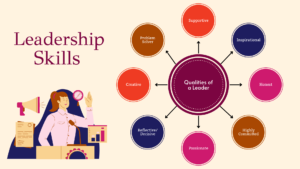For many students, achieving higher grades in university assignments represents both a challenge and a key to long-term academic and professional success. Assignment grades reflect not only subject knowledge but also skills such as critical thinking, originality, organisation, and independent research (Cottrell, 2013). In higher education, students are assessed on their ability to interpret questions accurately, apply theories critically, and present coherent arguments with appropriate referencing (Moon, 2004).
This article explores strategies that enhance assignment performance, including independent reading, interpreting assignment briefs, demonstrating originality, class engagement, critical analysis, effective time management, feedback utilisation, and digital literacy. It incorporates research findings and examples from academic practice to show how these methods can be applied effectively.
Independent Reading is Vital
Relying solely on lecture notes is rarely sufficient for high grades. Independent reading deepens understanding and demonstrates initiative. Cottrell (2013) stresses that each module’s reading list provides only the starting point. Students should go beyond set readings, following references at the end of chapters and using library databases to explore additional scholarly perspectives.
For example, in a psychology essay on memory theories, a student who only cites their core textbook may achieve an average grade. However, one who engages with recent journal articles on working memory models (Baddeley, 2012; Liu et al., 2025) demonstrates breadth of knowledge, which markers reward. Research by Ying et al. (2025) also confirms that needs-based academic reading enhances writing fluency and content quality.
Understanding Assignment Briefs
A frequent reason for low marks is failure to address the assignment brief precisely. Moon (2004) highlights that students often summarise material without explicitly answering the question. Key to success is identifying command words such as analyse, evaluate, or compare, which indicate the depth of response required.
For instance, the command analyse in an economics assignment requires breaking down arguments into components and examining relationships, while discuss demands a balanced exploration of competing viewpoints. As Rana et al. (2025) show, students from underrepresented backgrounds who received training in brief interpretation and assignment mapping significantly improved their grades.
Practical steps include:
- Breaking down questions into core components.
- Clarifying ambiguous terms with tutors.
- Mapping content to ensure all parts of the question are answered.
Demonstrating Originality
Markers award higher grades to assignments that demonstrate originality. Originality does not require creating new theories but involves applying concepts in novel ways, synthesising sources, or bringing unique perspectives (Purdue OWL, 2024).
For example, in a business essay, instead of merely describing Porter’s Five Forces, a student could apply it to a local start-up rather than a commonly cited multinational. Similarly, students drawing on workplace experiences or conducting mini-surveys can introduce unique insights. Research by Sarani et al. (2025) confirms that self-efficacy in research skills correlates strongly with assignment performance.
Making the Most of Class Sessions
Class engagement directly supports assignment performance. Lectures and seminars provide hints about assessment focus, while tutorials offer opportunities to clarify expectations. Cottrell (2013) stresses that active participation—asking questions, debating peers, and reflecting on examples—enables deeper understanding.
Dasig (2025) found that students in experiential learning classrooms achieved higher grades because they could link theoretical knowledge to applied tasks. A practical example is a law student who attends seminars regularly and uses hypothetical case studies discussed in class as illustrative evidence in essays.
Being Critical
High grades demand critical engagement rather than descriptive writing. Criticality involves evaluating strengths, weaknesses, and contexts of theories. Moon (2004) explains that acknowledging limitations demonstrates mature academic thinking.
For example, a sociology essay discussing Durkheim’s views on education should not only summarise his arguments but also critique their relevance in today’s diverse and digital societies. Kampmane and Ozola (2025) highlight that self-efficacy influences how confidently students critique material, with higher self-efficacy linked to stronger analytical writing.
Effective Time Management
Time management plays a vital role in achieving high grades. Poor planning often leads to rushed work, superficial arguments, and referencing mistakes. Mittler (2025) notes that using AI-assisted planners and digital calendars can help students break down assignments into manageable tasks, reducing procrastination.
A practical strategy includes allocating time for:
- Research and reading (30%).
- Draft writing (40%).
- Editing and referencing (20%).
- Final proofreading (10%).
Babicz-Kiewlicz (2025) found that students in gamified learning formats, which encouraged consistent weekly submissions, performed better overall, demonstrating the value of steady progress.
Using Feedback Effectively
Feedback provides insights into strengths and areas for improvement. However, many students fail to use it constructively. Lazareva and Muhic (2025) show that those who tracked recurring feedback themes (e.g., citation errors or weak argumentation) improved significantly in later assignments.
For example, if feedback highlights a lack of critical analysis, the student can focus on integrating evaluative language in the next assignment (e.g., “While Smith’s theory explains X, it fails to address Y”). Over time, feedback fosters self-regulated learning.
Leveraging Digital Tools
Digital tools support both research and writing. Purdue OWL (2024) remains a key resource for understanding assignment types and referencing. Other tools include:
- Reference managers (e.g., Zotero, Mendeley).
- Plagiarism checkers to ensure originality.
- Grammar checkers for clarity.
Hrdličková (2025) emphasises the effectiveness of AI-supported writing strategies, which help refine structure and style while maintaining academic integrity. However, Pedersen (2025) warns against overreliance on generative AI, which may undermine critical thinking. Responsible use enhances, rather than replaces, independent effort.
Balancing Wellbeing and Academic Work
Finally, academic performance is tied to mental wellbeing. Liu et al. (2025) highlight that fatigue negatively affects accuracy and cognitive performance in student tasks. Students aiming for high grades should balance study with rest, exercise, and social support.
Achieving higher grades in university assignments requires more than memorising facts. Success depends on independent reading, accurate brief interpretation, originality, critical thinking, class engagement, effective time management, and use of feedback and digital tools. Research confirms that these strategies collectively enhance both grades and long-term academic development.
By combining these practices with reflective learning and attention to wellbeing, students can produce assignments that not only achieve top marks but also build the skills needed for lifelong academic and professional success.
References
Babicz-Kiewlicz, S. (2025). Comparing learning outcomes in traditional and gamified lecture formats. MostWiedzy. Available at: https://mostwiedzy.pl/pl/publication/comparing-learning-outcomes-in-traditional-and-gamified-lecture-formats,165831-1.
Cottrell, S. (2013). The Study Skills Handbook. 4th ed. Palgrave Macmillan.
Dasig, D.R.J.P. (2025). Impact of experiential learning in a smart classroom on students’ academic performance. International Journal of Advanced Multidisciplinary Studies. Available at: https://www.ijams-bbp.net/wp-content/uploads/2025/08/4-IJAMS-APRIL-2025-298-311.pdf.
Hrdličková, Z. (2025). Enhancing learning outcomes in written production by implementing writing strategies and using AI tools. Advanced Education Journal, 13(1), pp. 45–58.
Kampmane, K. & Ozola, A. (2025). Validation of the Academic Self-Efficacy Scale. Education Sciences, 15(8), p.1082.
Lazareva, A. & Muhic, M. (2025). University Students’ Use of Artificial Intelligence Tools. EDULEARN25 Proceedings.
Liu, Q., Huang, R., Cicchella, A. & others (2025). The impact of mental fatigue on academic performance. Sports, 13(8), p.259.
Mittler, S. (2025). Harnessing generative AI to overcome executive dysfunction in higher education. HEAD Conference Proceedings.
Moon, J.A. (2004). A Handbook of Reflective and Experiential Learning: Theory and Practice. Routledge.
Pedersen, I. (2025). AI agents, wearable computing and the future of postsecondary learning. Frontiers in Education, 10.
Purdue University Online Writing Lab (2024). Understanding Writing Assignments. Available at: https://owl.purdue.edu/owl/general_writing/common_writing_assignments/understanding_writing_assignments.html [Accessed 30 July 2024].
Rana, K.S., Alvey, E., Flavell, C.R., Gough, J. & others (2025). Advancing equity: exploring EDI in Higher Education Institutes. Frontiers in Education, 10. https://www.frontiersin.org/articles/10.3389/feduc.2025.1621185/full.
Sarani, M., Isfahani, P., Bagheri, S., Arefy, M. & others (2025). Research self-efficacy among students at Zabol University of Medical Science. ResearchSquare. Available at: https://www.researchsquare.com/article/rs-6670795/latest.
Ying, B., Ismail, H.H.B. & Yunus, M.M. (2025). Needs analysis for enhancing academic English writing instruction. International Journal of Academic Research in Education.









